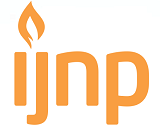Publication Ethics
This journal follows guidelines from the Committee on Publication Ethics (COPE) and the International Committee for Medical Journal Editors (ICMJE) in facing all aspects of publication ethics and, in particular, how to handle cases of research and publication misconduct. Author contribution should follows guidelines from CASRAI.
All studies must be conducted to a high ethical standard and must adhere to local regulations and standards for gaining scrutiny and approval. The work described in your article must have been carried out in accordance with The Code of Ethics of the World Medical Association (Declaration of Helsinki) for experiments involving humans; EC Directive 86/609/EEC for animal experiments.
IJNP (Indonesian Journal of Nursing Practices) adopts COPE to meet a high-quality standard of ethics for editors, authors, and reviewers. The publication of an article in a peer-reviewed journal reflects the work quality of its author(s) with his/her or their pertaining institution(s). Therefore, it is important for a peer-reviewed journal to have an ethical standard for all parties involved in the act of publishing: the author(s), the journal editors,and the peer reviewers . IJNP (Indonesian Journal of Nursing Practices) is committed to ensuring that advertising, reprint, and/or other commercial revenues have no impact nor influence editorial decisions. In addition, the IJNP (Indonesian Journal of Nursing Practices) will assist in communications with other journals and/or publishers should this be necessary to the editors.
Duties of the editors
The editors are responsible to decide which of the submitted articles should be reviewed and published. The validation of the work in question and its importance to researchers and readers must always drive such a decision. The editor-in-chief must seriously prevent libel, copyright infringement, and plagiarism. An editor should evaluate manuscripts for their intellectual contents without regard to race, gender, sexual orientation, religious belief, ethnic origin, citizenship, or political philosophy of the author(s).
Editors and any editorial staff must not disclose any information on a submitted manuscript to anyone other than the corresponding author(s), reviewers, potential reviewers, other editorial advisors, and the publisher, as appropriate. Unpublished materials disclosed in a submitted manuscript must not be used in an editor's own research without a written consent of the author(s). Privileged information or ideas obtained through a peer review must be kept confidential and not used for personal advantages.
Editors should recuse themselves from considering manuscripts in which they have conflicts of interest. Editors should require all contributors to disclose relevant competing interests and publish corrections if competing interests are revealed after publication. An editor should take reasonably responsive measures when ethical complaints have been presented concerning a submitted manuscript or published paper, in conjunction with the publisher (or society). Every reported act of unethical publishing behavior must be looked into, even if it is discovered years after publication.
Duties of the reviewers
A peer review assists the editor-in-chief in making an editorial decision and editorial communications with the author(s). Any selected referee who feels unqualified to review research reported in a manuscript, or knows that its prompt review will be impossible, should notify the editor-in-chief and excuse himself/herself from the review process. Any manuscript received for review must be treated as a confidential document.
Reviews should be conducted objectively. Personal criticism of the author(s) is inappropriate. Referees should express their views clearly with supporting arguments. Any statement that an observation, derivation, or argument had been previously reported should be accompanied by relevant citations. A reviewer should also call to the editor-in-chief's attention any substantial similarity or overlap between the manuscript under consideration and any other published paper of which he/she has personal knowledge. Unpublished materials disclosed in a submitted manuscript must not be used in a reviewer’s own research without an expressed written consent of the author(s). Privileged information or ideas obtained through a peer review must be kept confidential and not utilized for personal advantages. Reviewers should not consider manuscripts in which they have conflicts of interest.
Duties of the authors
Authors of a report of original research and synthesis literature should present an accurate account of the work performed as well as objective discussion on its significance. Data and citations should be represented accurately in the paper. Fraudulent or knowingly inaccurate statements constitute unethical behavior and are unacceptable. Plagiarism takes many forms, from using another’s paper as the author’s own paper to copying or paraphrasing substantial parts of another’s paper (without attribution), or claiming results from research conducted by others. Plagiarism in all its forms constitutes unethical publishing behavior and is intolerable.
An author should not publish a manuscript describing essentially the same research in more than one journal or primary publication. Submitting the same manuscript to more than one journal concurrently constitutes unethical publishing behavior and is unacceptable. Information obtained privately, as in conversation, correspondence, or discussion with third parties, must not be used or reported without explicit, written permission from the source(s). Authorship should be limited to those who have made a significant contribution to the conception, design, execution, or interpretation of the reported study, and seen and approved the final version of the paper and agreed to its submission for publication.
All authors should disclose in their manuscripts any financial or other substantive conflicts of interest. When an author discovers a significant error or inaccuracy in his/her own published work, it is the author’s obligation to promptly notify the IJNP’s editor-in-chief and cooperate with the editor to retract or correct the paper.
For more detailed information, visit http://publicationethics.org/
Ethical clearance
That research involving human subjects should be conducted in accordance with relevant laws and institutional guidance. The author should clearly explain in the manuscript if it involves chemicals, procedures, or equipment that have an unusual degree of danger. It is compulsory for the authors to write in the manuscript that the procedures performed have been in accordance with the rules and the guideline, and have received permission to conduct such research. If the authors want to display case details or personal information, they must obtain written consent of the patient or the authorities. All permissions should be presented by the author to the editor if requested. Authors should upload ethical clearance document as supplementary file.
Article Withdrawal Policy
Authors can request a withdrawal of their article from the peer-review process or publication process, then he/she must submit a formal letter, provided by our editorial office (Withdrawal Letter – Article), signed by the corresponding author and all the co-authors. The authors should mention their reasons for article withdrawal in the withdrawal letter.
Retraction
Retraction will be applied if there is any research misconduct. Research misconduct refers to fabrication, falsification, citation manipulation, or plagiarism in producing, performing, or reviewing research and writing an article, or in reporting research results. When authors are found to have been involved in a research misconduct or other serious irregularities involving articles that have been published in scientific journals, editors have a responsibility to ensure the accuracy and integrity of the scientific record.
In cases of suspected misconduct, the editors and Editorial Board will use the best practices of COPE to assist them in resolving the complaint and addressing the misconduct fairly. This will include an investigation of the allegation by the editors. A submitted manuscript that is found to contain such misconduct will be rejected. In cases where a published paper is found to contain such misconduct, a retraction can be published and will be linked to the original article.
The first step of the process involves determining the validity of the allegation and assessing whether the allegation is consistent with the definition of research misconduct. This initial step also involves determining whether the individuals alleging misconduct have relevant conflicts of interest.
If scientific misconduct or the presence of other substantial research irregularities is a possibility, the allegations are shared with the corresponding author, who, on behalf of all of the co-authors, is requested to provide a detailed response. After the response is received and evaluated, additional review and involvement of experts (such as statistical reviewers) may be obtained.
Institutions are expected to conduct an appropriate and thorough investigation of allegations of scientific misconduct. Ultimately, authors, journals, and institutions have an important obligation to ensure the accuracy of the scientific record. By responding appropriately to concerns about scientific misconduct, and taking necessary actions based on evaluation of these concerns, such as corrections, retractions with replacement, and retractions, IJNP will continue to fulfill the responsibilities of ensuring the validity and integrity of the scientific record.
Contributor Roles:
IJNP follows authorship contribution guideline from CASRAI (https://casrai.org). authorship contribution include: conceptualization, data curation, formal analyses, funding acquisition, investigation, methodology, project administration, resources, software, validation, visualisation, and writing draft and revision. For further details of each contribution can be accessed in https://casrai.org



















.png)

